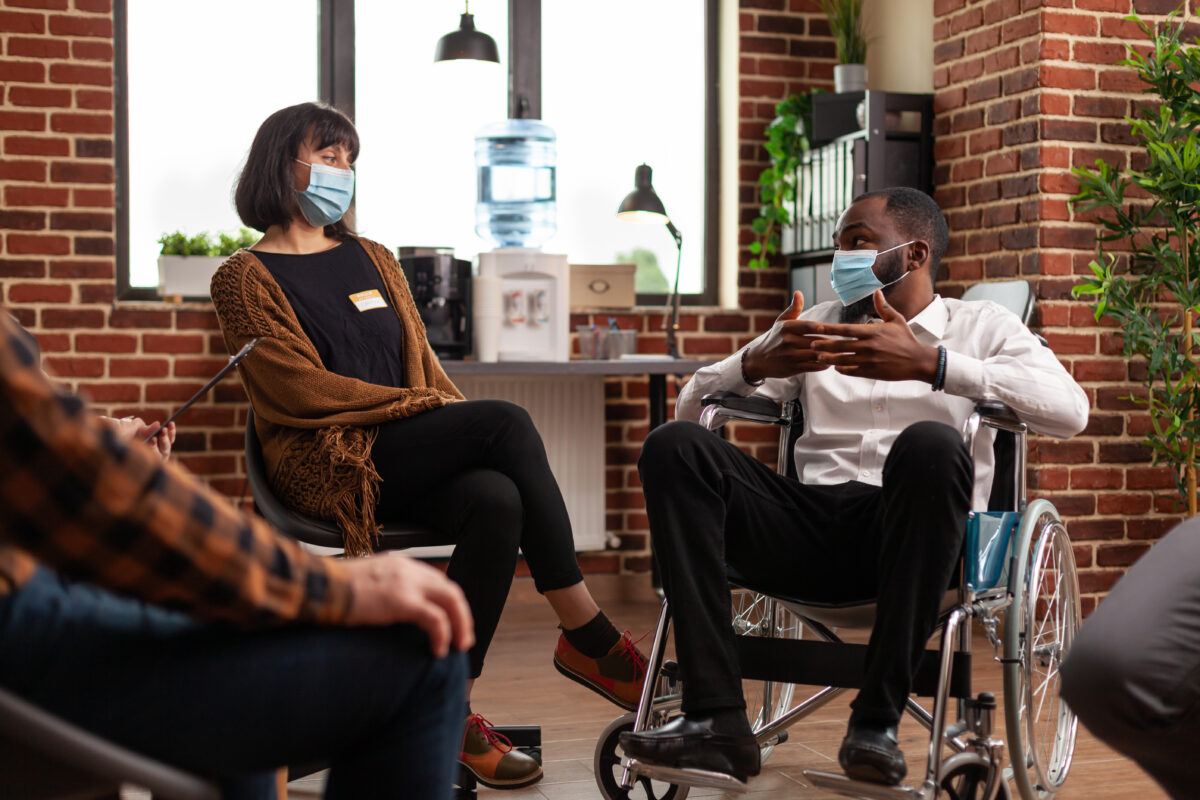Disabilities, whether temporary or permanent, caused by trauma, genetics, or a disease, can affect anyone. When you or a loved one becomes disabled as an adult, know that it’s entirely possible to live an independent life through disability advocacy.
Disability advocacy provides people with disabilities the knowledge to expand and defend their rights, support self-advocacy and provide legal assistance. At Delta Center, our advocacy services are free, meaning you don’t have to worry about being unable to afford the help you need when you need it.
Here’s what disability advocacy can do for you:
Support disabled adults
We support disabled adults by helping them understand how to navigate government agencies and benefits like Medicaid and Social Security. For example, we can help identify programs you might qualify for and guide you through the application processes you need. Types of disability advocacy include:
- Self-advocacy
- Legal advocacy
- Group advocacy
- Citizen advocacy
- Systemic advocacy
These types of advocacy work short- and long-term for social and legal change to ensure the collective rights and interests of those living with a disability.
Teach self-advocacy
At Delta Center, we work hard to make sure that those new to being disabled can live independently and self-advocate. Self-advocacy is essential in being able to promote your own needs and rights. We teach people how articulate and discuss their situation that needs to be addressed.
Several of our specialists, like Michael Anderson, are disabled themselves and understand the unique challenges and obstacles persons with disabilities may face. As such, they can provide a unique perspective and can help others overcome obstacles.
Teach independent living skills
As a disabled adult, you deserve to live your life to the fullest. That’s why at Delta Center, we provide courses to teach independent living skills to disabled adults and equipment such as adaptive telephones and mobility devices.
Independent living skills include:
- Cooking, eating, and nutrition
- Hygiene
- Health care
- Home care
- Health care
- Financial management
- Problem-solving
- Dressing and clothing care
- Communication
With the proper support, adults with disabilities can make significant steps towards independence.
Learn more about the Americans with Disabilities Act HERE.
For more information about advocacy, please call our Information and Referral Hotline at 636-926-8761, extension 228, or you may contact us by email at [email protected].

